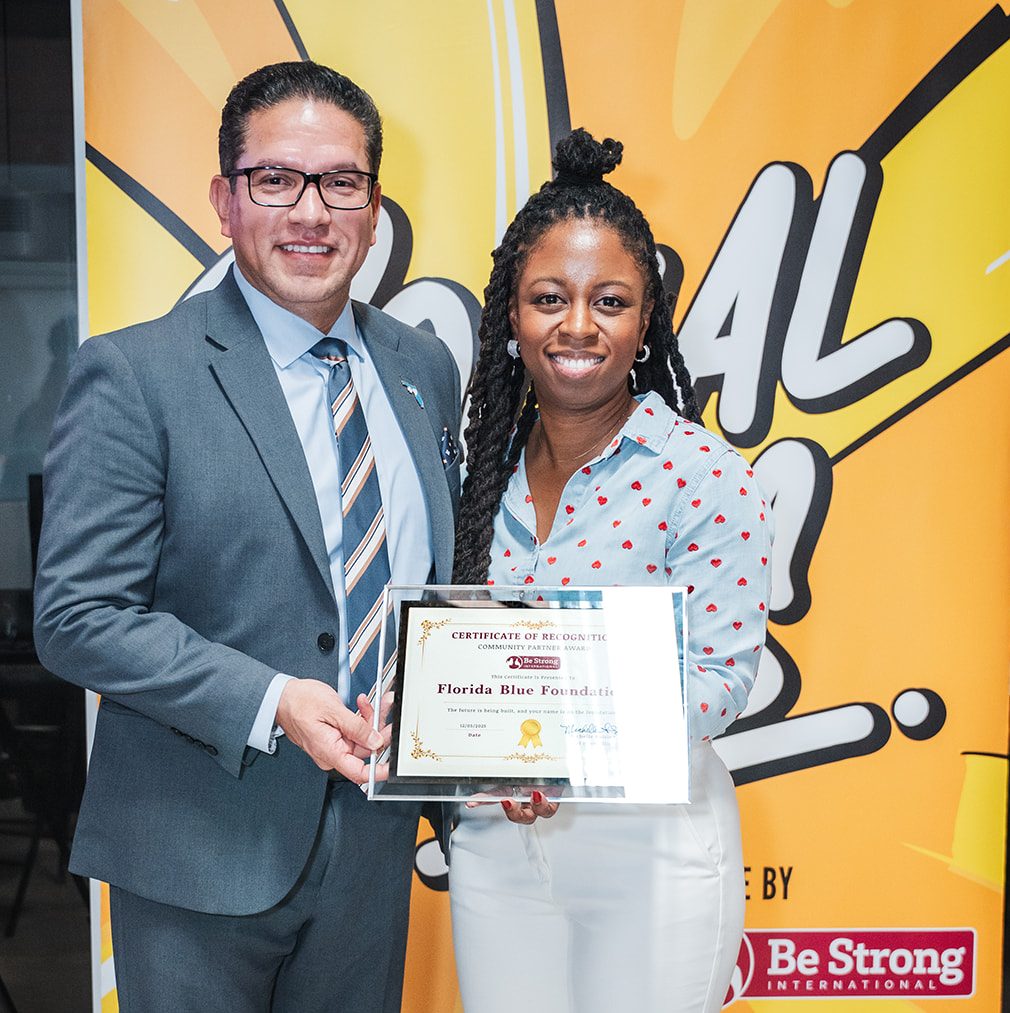Honest communication is one of the secrets to a successful marriage, as any relationship expert will tell you. The advice is based on serious research, including the finding that happy couples communicate in a positive way. It only makes sense. You can’t expect to spend the rest of your life with someone if you can’t talk openly and honestly with them. To live as your authentic self and build a healthy marriage, you must be able to express your true feelings and beliefs, especially when they affect your partner. When problems arise, you must be able to start a conversation and say what’s on your mind so you can work out the issue together.
Knowing that is the easy part. How do you begin? There are some healthy ways to start a difficult conversation with your spouse. First, let’s explore why communication is critical to a strong marriage.
Why Communication Matters
According to a study published by the National Institutes of Health, communication is an essential factor in a married couple’s satisfaction with their relationship. Those who communicate in positive ways tend to be more satisfied with their marriage, according to the study’s authors.
Catherine Aponte, Psy.D., explores communication and other relationship matters in the book A Marriage of Equals: How to Achieve Balance in a Committed Relationship. She also writes the Marriage of Equals blog at Psychology Today. Aponte says open communication between spouses “is not a debate between partners’ preconceived notions about what is going on between the two of you . . . (but) is about [spouses] collaborating with each other by sharing perceptions, feeling, ideas, and thoughts so that they can come to an understanding of what is happening between them—what their joint reality is.”
Aponte offers five reasons communication is good for a marriage:
It keeps you close to each other.
Couples drift away from each because they’ve stopped talking and sharing their ideas and opinions. Sharing openly can bring the two partners together.
It makes everything clear.
Many disagreements and conflicts happen because one partner assumes they know what the other is thinking or feeling. They could be wrong. But they’ll never know if you don’t tell them what’s really going on.
It helps you grow as a couple.
Talking with your spouse and sharing what you’re going through will help you grow together in your relationship. When you have nothing to say to each other, you can grow bored and uninterested.
You’re more likely to be faithful.
Isolation creates fertile ground for infidelity. When you don’t talk to each other, it’s easy to forget why you were attracted to each other, and without sharing your thoughts, it’s hard to bring back those memories.
Communication prevents divorce.
Lack of communication is the most common reason for divorce, Aponte points out. No wonder – if you aren’t sharing anything and you have nothing in common anymore, why stay together?
“When two individuals come together in marriage, they are committing to creating a life together,” Aponte writes. “But they are, after all, two separate individuals with their own likes and dislikes, values, beliefs, and ideas.” They have to share those ideas for the other person to understand them.
Types of Communication in Marriage
You can start improving your marriage relationship by understanding the three ways we communicate. Many marital issues arise because couples don’t realize the impact of these types.
Speaking with Your Words
You might think this is the most straightforward form of communication, but it’s not as simple as it seems – especially when it comes to speaking up about a problem. In fact, when marriage problems occur, your spouse may even deny they exist. So to stay alert to marital issues, you must be in tune with the two forms of non-verbal communication.
Speaking with Your Body
Body language is a crucial indicator of what someone is thinking or feeling. The way someone stands, how their body reacts when speaking or listening to you, and whether they make eye contact with you are powerful clues to what they’re really thinking. If you ask your spouse a question and they avoid your gaze or turn away when answering, for instance, it could mean they’re not being truthful. Learning to translate your spouse’s body language can help you build a strong marriage.
Speaking with Your Actions
That old cliché is true: Actions speak louder than words, and you should pay close attention to the clues your spouse is sending you with their actions. A spouse who gives you little gifts when it’s not your birthday, who takes over household chores you hate, or gives you time with your friends is saying “I love you” without saying the words. A spouse who doesn’t keep their promises or isn’t there when you need them is saying something else. It could be time for marriage counseling.
Getting Professional Help
There’s nothing wrong with seeking outside help to heal your marriage problems. The American Association for Marriage and Family Therapy (AAMFT) has found a high rate of success for couples who use marriage counseling to improve their relationship. A great place to start is with the AAMFT’s Therapist Locator. If you have health insurance, you may be able to get help at little to no cost to you.
Even if you decide to seek professional marriage counseling, there are some strategies you can use now to develop your communication skills with your spouse and make your marriage stronger.
Top 7 Tips to Start a Difficult Conversation with Your Spouse
The best way to fix a problem is to acknowledge that it’s happening. But both you and your spouse must agree on what the marriage problems are before you can start working on them. That means having a difficult conversation. Here’s how to proceed:
1. Plan what you want to say.
Don’t plan to “wing it” or improvise. What exactly is the problem, as you see it? Why is it a problem? These are questions your spouse is likely to ask, and you need to have an answer. But it will also help you to clarify the situation for yourself. Write down your thoughts, if possible, but don’t read them during the actual conversation. You need to speak from your heart, not from your notes.
2. Pick the right time.
If you have children, choose a time when they’re not around or are occupied in another room so you can focus on your spouse and the issues you’re discussing. Avoid talking after the kids are in bed, however; getting them to sleep is sometimes a stressful experience, and you should both be in a relaxed frame of mind.
3. Use positive body language.
Remember the importance of non-verbal communication. Pay attention to how your spouse’s body is receiving your words but be mindful of your own unspoken words too. Keep your arms at your sides. Be sure to look your spouse directly in the eye and keep your expression friendly and welcoming; you don’t have to smile if you’re not feeling happy but try not to scowl.
4. Respectfully acknowledge your spouse’s point of view.
You can disagree with your spouse, but don’t dismiss their point of view without considering it and acknowledging they have a right to it. Ask them to explain their opinion and keep an open mind. You might find you agree with them once you understand why they feel that way.
5. Listen at least as much as you speak.
To understand someone else’s point of view, you have to listen to what it is. Don’t let your assumptions color the way you speak about the situation. Ask questions and, more importantly, listen to the answers.
6. Thank your spouse.
Start the conversation by thanking them for being willing to talk and thank them again at the end. Showing that you appreciate their time and believe in the need for effective communication will go a long way toward resolving your marriage problems. Often, just making an effort and confronting a problem is enough to improve your relationship. (It’s just the first step, of course.)
7. Don’t expect change right away.
Be patient. Your first conversation about marital issues should not be about “fixing” a problem but should focus instead on recognizing the problem and agreeing to come together to fix it. Of course, some issues will have obvious solutions, but if you don’t arrive at one, you should feel good that you’ve taken the first step to solving it. For now, success need only mean deciding to work on the marriage problem together – and agreeing to keep talking about it.
Be Strong International’s Marriage Matters Program
Free help is available through Be Strong International’s Marriage Matters program, an eight-week series of workshops and seminars that help participating couples develop and maintain healthy relationships. Communication skills – both speaking and listening – are one of the program’s primary focus areas. Its evidence-based curriculum offers the best marriage advice available. And it’s fun – activities include a date night midway through the program, and the series ends with a meaningful graduation ceremony.
For more information on our program, visit our Marriage Matters Program on BeStrongIntl.org.
To contact us or register for our online-based Marriage Matters classes, click here.









